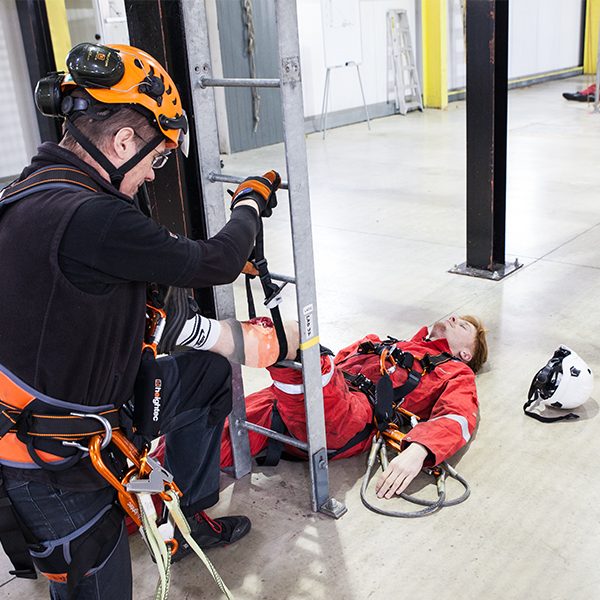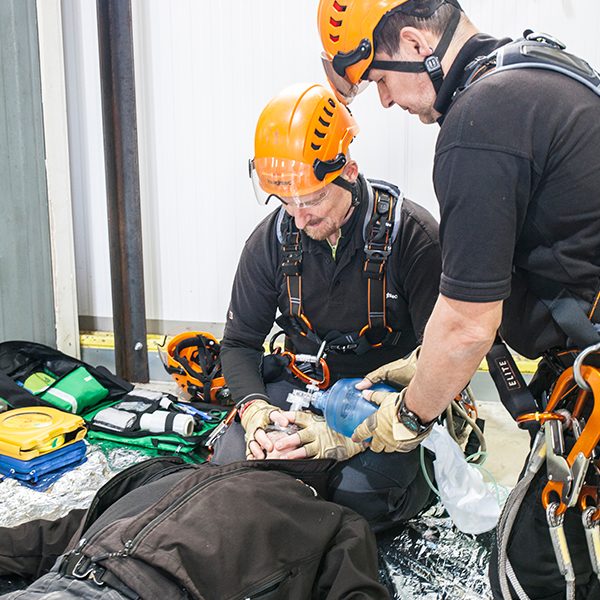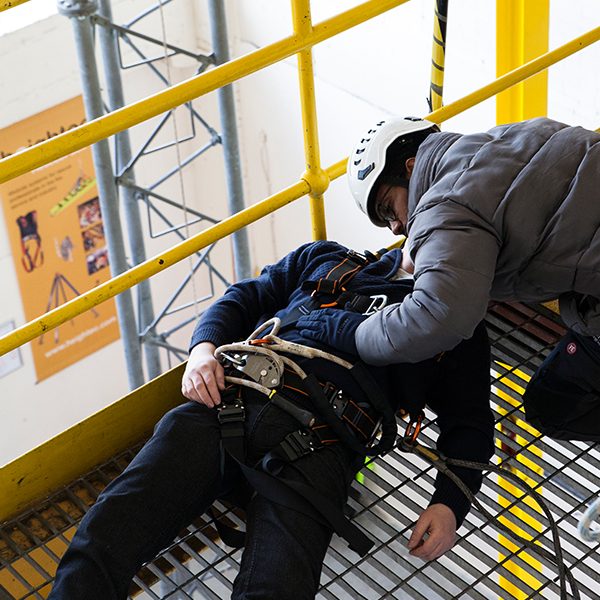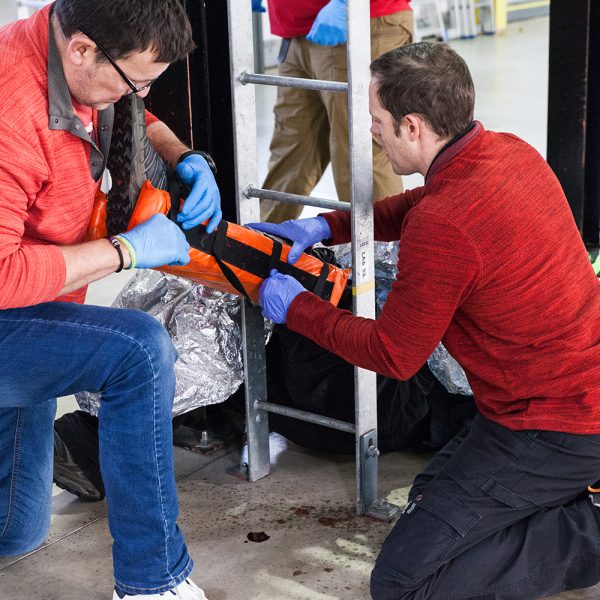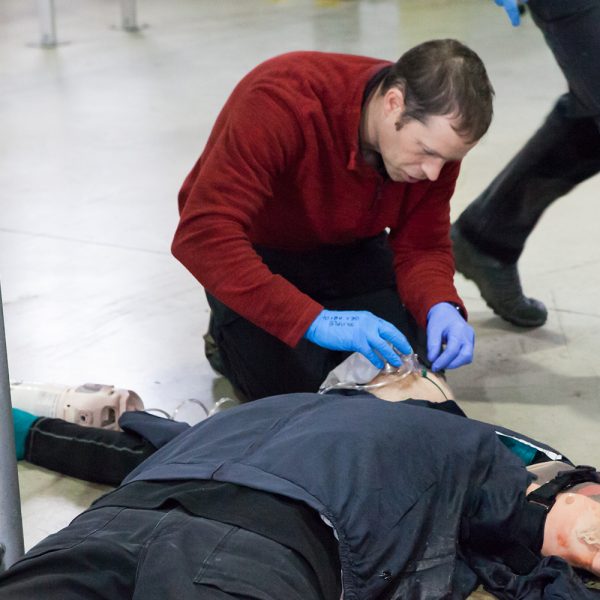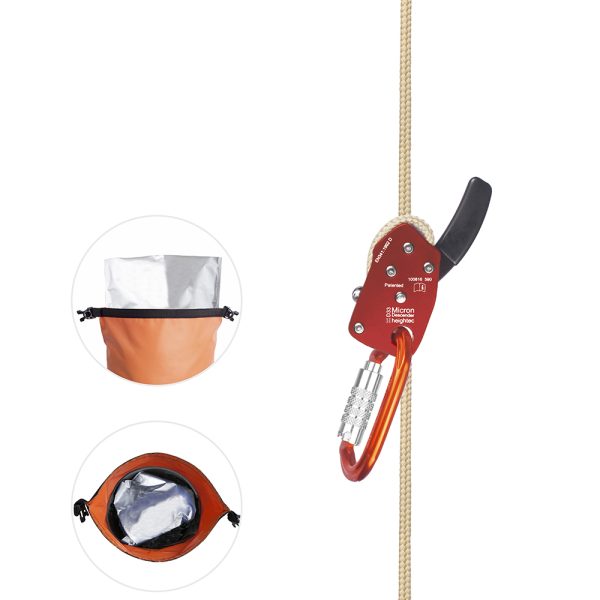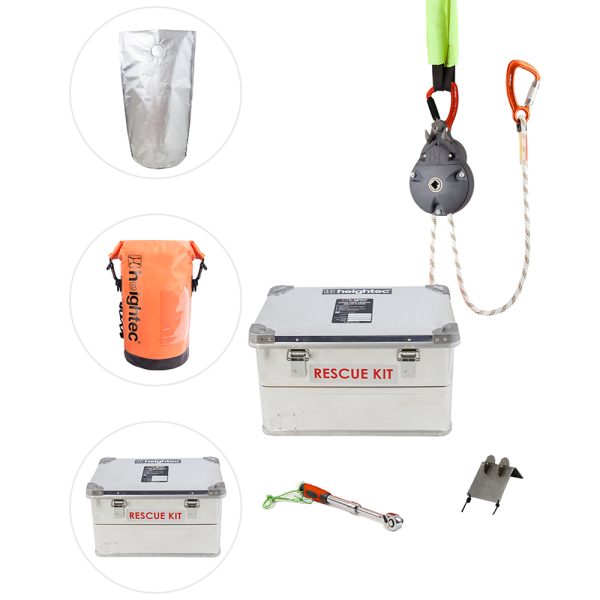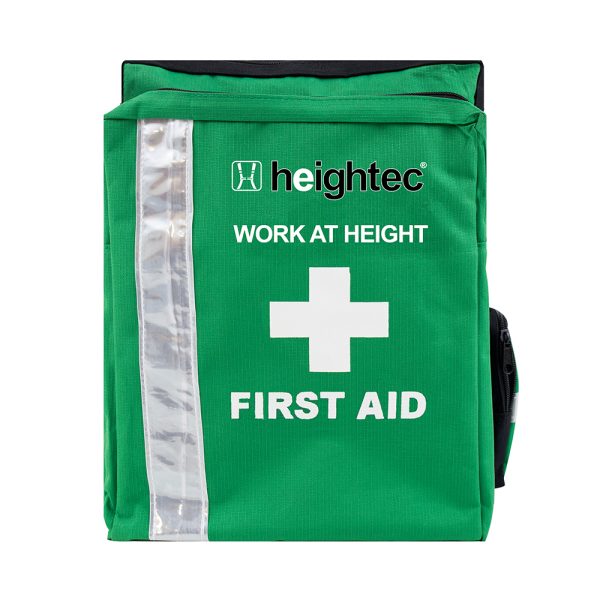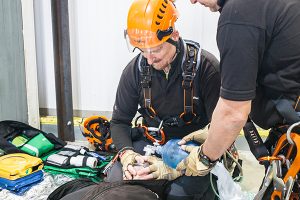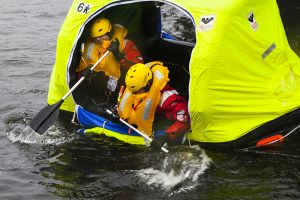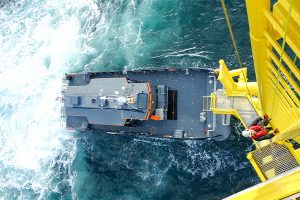GWO Enhanced First Aid (EFA) training standard has been developed in response to the demand for recognisable Enhanced First Aid (EFA) training in the wind industry.
This course enables participants to administer safe, effective and immediate lifesaving and enhanced first aid measures to save lives and give assistance in remote areas using advanced emergency equipment and medical teleconsultation.
The course includes:
- Local legislation/risks/hazards and demands to ensure knowledge of the roles, responsibilities and rules that apply to Enhanced First Aid in remote areas.
- The importance of carrying out basic and enhanced first aid in a safe and sound manner, in accordance with the legislative requirements of their geographical location and according to European Resuscitation Council (ERC) and American Heart Association (AHA) guidelines.
- Identifying and explaining normal function and normal vital signs. Identify signs, functions and symptoms of serious and minor injuries and illness related to the human body.
- Demonstrating understanding and correct order of management in an emergency situation in a Wind Turbine Generator (WTG) environment.
- Delivering immediate basic and enhanced first aid to stabilise the casualty:
- Using standardised methodologies, specifically the Primary and Secondary Survey – based on the “C”-A-B-C-D-E principle
- Stopping life-threatening bleeding
- Establishing and maintaining an airway
- Resuscitation and the use of Automated External Defibrillator (AED) according to the indicators
- Using basic and advanced First Aid equipment in a first aid scenario
- Assessing the casualty, for injury or acute illness, to determine if medical advice and external to incident support is required:
- Life-threatening bleeding, circulatory disorder
- Impaired consciousness
- Compromised airway, breathing too slow or too fast
- Immediate life-threatening illnesses and other health problems especially with severe pain
- Requesting telemedical consultation and medical/rescue assistance. Providing a concise and relevant report of the casualty’s condition and obtaining medical advice to further stabilise the casualty by using:
- Telemedical consultation through National resources e.g. Coastguard
- Telemedical consultation through private contractor (where established)
- Requesting immediate medical/rescue assistance providing a concise and relevant report of the casualty’s condition
- Preparing the casualty for transfer to nominated evacuation/rescue point, including:
- Immobilisation where required or other non-medical mitigation e.g. cooling gels
- Understanding the complexity and restrictions of medical pain relief and the role of clinical governance in the control of medication
- Accompanying the casualty, if required, to a suitable medical facility and formally hand over the casualty
- Escorting the casualty to the nominated evacuation/rescue point providing continued enhanced first aid
- Acting as a leader in first aid situations
- Administering safe, effective and immediate lifesaving and enhanced first aid measures to save lives and give assistance in remote areas using advanced emergency equipment and medical consultation, while having particular regard for personal protection
On completion of the GWO Enhanced First Aid (EFA) training course, participants will receive both the GWO First Aid certificate and the GWO Enhanced First Aid certificate.
Training certificates are issued online via GWO’s WINDA system. Certificate valid for 2 years. Training should be renewed before the end of the given validity period. A certificate can be renewed up to two months prior to expiry and maintain the original certification date. Participants will be required to complete the GWO Enhanced First Aid Refresher training course.
GWO Participants ESSENTIAL – PLEASE NOTE:
- Safety footwear is required for all practical sessions.
- Participants must provide a WINDA ID number at time of booking. Failure to do so will delay GWO certification. Please refer to globalwindsafety.org/register.
- GWO participants are required to bring a government issued ID (passport or driving license) which will be checked at registration on their course.
It is the participants/bookers responsibility to ensure that all relevant pre-requisites are met to attend this course and that the evidence is provided on the first day of the course e.g. in-date certificates for revalidation courses. Failure to meet any of these pre-requisites may result in the participant being asked to leave the course. No refund will be given in this event.
